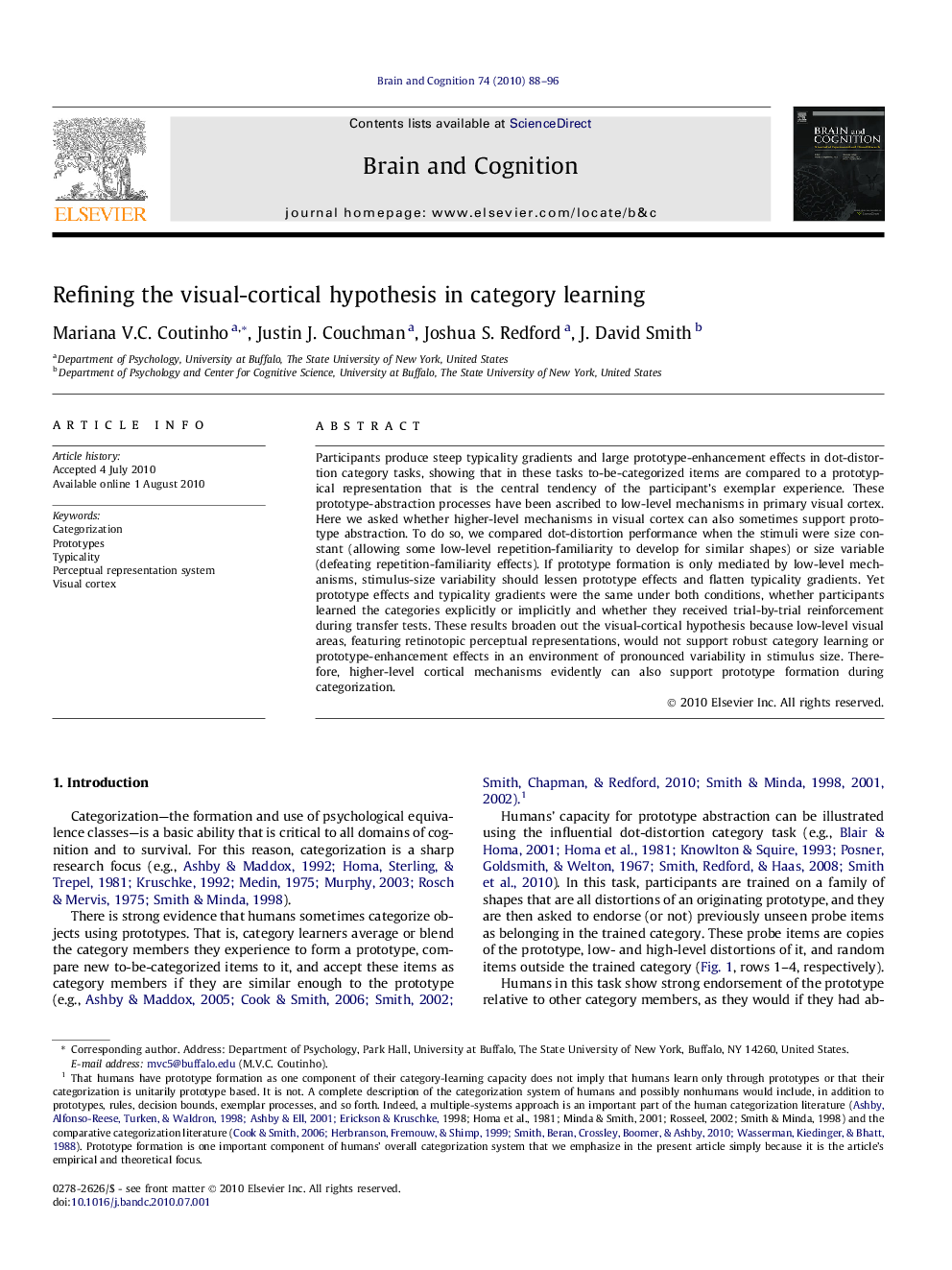| کد مقاله | کد نشریه | سال انتشار | مقاله انگلیسی | نسخه تمام متن |
|---|---|---|---|---|
| 924845 | 921280 | 2010 | 9 صفحه PDF | دانلود رایگان |

Participants produce steep typicality gradients and large prototype-enhancement effects in dot-distortion category tasks, showing that in these tasks to-be-categorized items are compared to a prototypical representation that is the central tendency of the participant’s exemplar experience. These prototype-abstraction processes have been ascribed to low-level mechanisms in primary visual cortex. Here we asked whether higher-level mechanisms in visual cortex can also sometimes support prototype abstraction. To do so, we compared dot-distortion performance when the stimuli were size constant (allowing some low-level repetition-familiarity to develop for similar shapes) or size variable (defeating repetition-familiarity effects). If prototype formation is only mediated by low-level mechanisms, stimulus-size variability should lessen prototype effects and flatten typicality gradients. Yet prototype effects and typicality gradients were the same under both conditions, whether participants learned the categories explicitly or implicitly and whether they received trial-by-trial reinforcement during transfer tests. These results broaden out the visual-cortical hypothesis because low-level visual areas, featuring retinotopic perceptual representations, would not support robust category learning or prototype-enhancement effects in an environment of pronounced variability in stimulus size. Therefore, higher-level cortical mechanisms evidently can also support prototype formation during categorization.
Journal: Brain and Cognition - Volume 74, Issue 2, November 2010, Pages 88–96